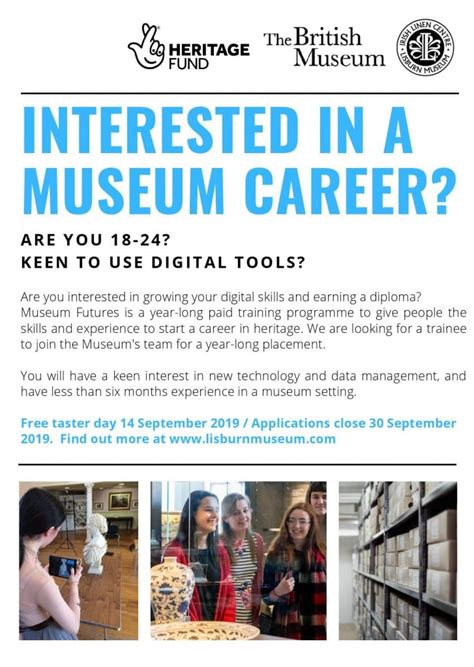Becoming a docent is a great way to share your passion for art, history, or science with others while gaining valuable experience and skills in the museum field. As a docent, you will have the opportunity to work with visitors of all ages, providing them with a unique and engaging experience that brings the museum's collections to life.
Whether you are a student looking to gain experience in the museum field, a retiree looking for a meaningful way to give back to your community, or simply someone who is passionate about art, history, or science, becoming a docent can be a rewarding and enriching experience.
In this article, we will explore the role of a docent, the benefits of becoming a docent, and the steps you can take to apply to be a docent at a museum near you.
What is a Docent?
A docent is a volunteer or staff member who leads tours and provides educational programs for visitors at a museum. Docents are responsible for creating a engaging and informative experience for visitors, helping them to understand and appreciate the museum's collections.
Docents may lead tours, give talks, or provide hands-on activities for visitors. They may also assist with educational programs, such as classes or workshops, and help to develop new programs and exhibits.
Key Responsibilities of a Docent
- Lead tours and provide educational programs for visitors
- Create a engaging and informative experience for visitors
- Develop and deliver talks, tours, and other educational programs
- Assist with educational programs, such as classes or workshops
- Help to develop new programs and exhibits
- Work with visitors of all ages, including children and adults

Benefits of Becoming a Docent
Becoming a docent can be a rewarding and enriching experience, offering a range of benefits, including:
- Gain experience in the museum field
- Develop public speaking and communication skills
- Enhance knowledge of art, history, or science
- Meet new people and make friends
- Contribute to the community
- Enhance resume and career prospects
How to Apply to Be a Docent
If you are interested in becoming a docent, here are the steps you can take to apply:
- Research museums in your area that offer docent programs
- Review the museum's website and contact their volunteer or education department to learn more about the program
- Submit an application, which may include a written application, interview, or audition
- Complete any required training or orientation programs
- Start leading tours and providing educational programs for visitors

Training and Support
Museums typically provide docents with comprehensive training and support to ensure they have the knowledge and skills needed to provide high-quality educational programs.
Training may include:
- Orientation to the museum and its collections
- Training on public speaking and communication skills
- Education on the museum's collections and exhibits
- Ongoing support and feedback from museum staff
What to Expect from Docent Training
Docent training programs are designed to provide you with the knowledge and skills needed to succeed as a docent. Here's what you can expect from a typical docent training program:
- Comprehensive overview of the museum and its collections
- Training on public speaking and communication skills
- Education on the museum's collections and exhibits
- Ongoing support and feedback from museum staff

FAQs
Here are some frequently asked questions about becoming a docent:
What is the time commitment required to be a docent?
+The time commitment required to be a docent varies depending on the museum and the specific program. Typically, docents are asked to lead 1-2 tours per week, which can last anywhere from 1-2 hours.
Do I need to have a background in art, history, or science to be a docent?
+No, you don't need to have a background in art, history, or science to be a docent. However, you should have a strong interest in the subject matter and be willing to learn.
How do I get started as a docent?
+To get started as a docent, research museums in your area that offer docent programs and submit an application. You may also need to complete an interview or audition as part of the application process.






By becoming a docent, you can unlock a range of career opportunities in the museum field while sharing your passion for art, history, or science with others. Whether you are a student, retiree, or simply someone who is passionate about museums, becoming a docent can be a rewarding and enriching experience.
